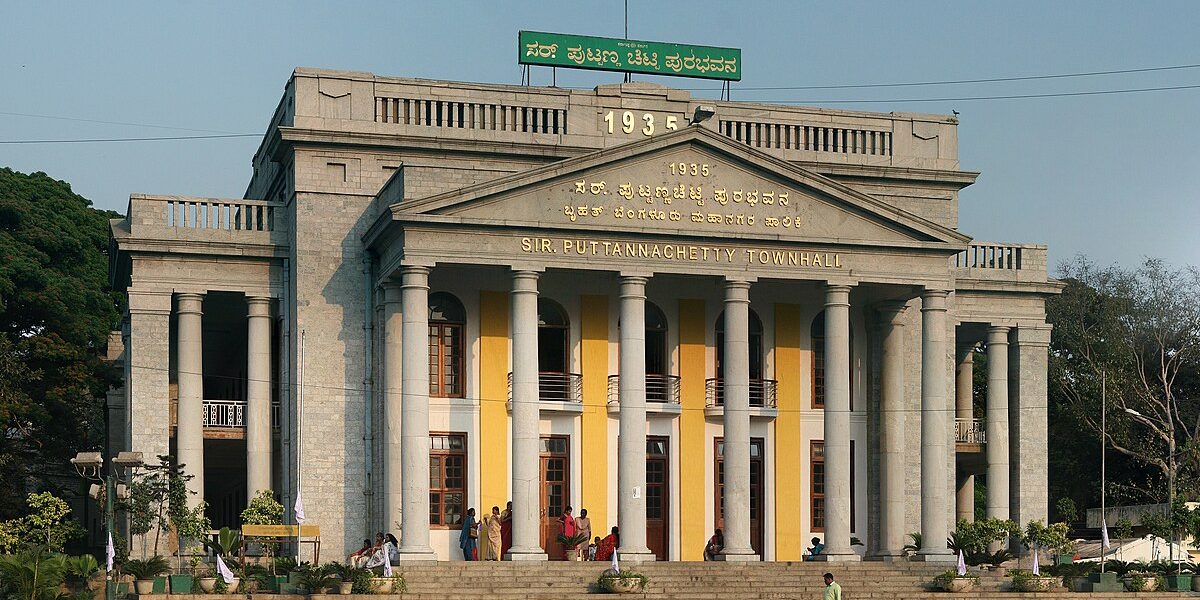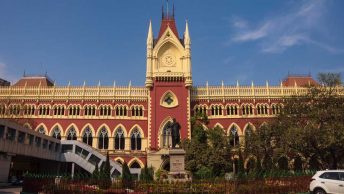In this article, the author argues that the Greater Bengaluru Governance Act must not be seen simply as a legal measure to displace the vision of decentralization. Instead, drawing from Alexis de Tocqueville’s account of township democracy, the author argues that the Act should be seen against the backdrop of a larger hollowing out of local citizenship
1. Introduction
The Greater Bengaluru Governance Act was passed in March this year, despite strong criticism from Opposition parties and citizens’ groups and finally signed into law by the Governor in April. The case against the Act can be summarised as follows: the Bill hands over the planning and finances of the city to the Greater Bengaluru Authority (‘GBA’) that is headed by the Chief Minister and the Bengaluru Development Minister, effectively overturning the promise of decentralization of the 74th Amendment. The Bill increases the executive branch’s power over a city that is already crippled by the absence of elected councilors for half a decade now. Separately, Alok Prasanna Kumar has criticised the Act for grave errors in drafting that leaves the GBA with wieldy but ultimately unimplementable functions.
I do not seek to dissect the legal and constitutional issues with the Bill. My case is that it is an error to see the Bill as an isolated attempt to disempower citizens. Instead, I position the Bill as a symptom of the death of local citizenship in Bengaluru.
2. Contours of Local Citizenship
By local citizenship, I refer to the practices that allow citizens to effectively participate in the governance of their surroundings through deliberation and collective action. The clearest elucidation of local citizenship comes from Alexis de Tocqueville, although he himself did not use that term. For Tocqueville, the township was the heart of American democracy. The township is distinct from the local government. It is the natural product of free citizens of a town coming together in mutual association and exercising their liberties to solve their problems.
Tocqueville did not have the grand cities of New York or Washington in mind when he elucidated the importance of townships. His theory was centered around the smaller towns of provincial New England. Yet, the wisdom of the theory lies in three simple truths that transcend the limits of time and space. First, as Tocqueville puts it, these local associations and institutions “put [liberty] within the people’s reach,” (78) allowing citizens to not only be acclimated to the idea of liberty, but to also recognise the value of its peaceful enjoyment. Democracy is thus transformed from a mere ideal to a lived, collective habit. This habit of democracy cultivates social mores and customs that facilitate the direct exercise of power by the people. For instance, a meeting can be called of all inhabitants if a new project is proposed. The townspeople then deliberate and vote on plans which are binding on elected “selectmen” who are in charge of execution. Second, it draws individuals from their private spheres and into public life, fostering a “degree of warmth and energy” among them (215). Citizenship must necessarily be performed in the public and aimed towards projects larger than their atomised selves. Third, it is irrelevant that local associations may not be as efficient as national or state governments (77). It suffices that the habit of democracy ingrained by these practices has the indispensable advantage of being the greatest bulwark against despotism.
- The crisis of democratic habits
Nothing in the three benefits of associations that Tocqueville outlines above is alien to the context in which this piece is being written. Indeed, the trace of his theorization is evident in the set up of the 74th Amendment and local municipal body legislations. They institutionalize associations through Area Sabhas and ward committees (Chapter IIIA of the Karnataka Act) that cultivates the spirit of liberty among people by allowing them to solve the problems at the local level. Area Sabhas in particular play a major role in bringing individuals from their private sphere and be concerned about the governance in their locality. Municipalities were given powers over town planning, land-use and construction of buildings, water supply, public health, sanitation, etc. under Article 243W.
Although Tocqueville argues that townships arise naturally, he warns that their survival is fragile. Once the power to influence decisions in their surroundings is lost to the state, the retrieval of a spirit of liberty among citizens at the local level becomes nearly impossible. The Greater Bengaluru Governance Act, with its reversal of the promise of decentralization, arguably is an indication of lost liberty. Indeed, the fact that the Act has been justified, in its Preamble, for bringing greater “efficiency” only reinforces Tocqueville’s warning. But my argument runs deeper: there are factors beyond the Act which indicate that we have lost the spirit of liberty — possibly irretrievably — and therefore, our habits of democracy. Tocqueville’s imagination of local citizenship has no place in the Bengaluru of today.
First, there is a serious threat to the very idea of association in Bengaluru. The city’s once-robust pluralism is threatened today through conscious attempts to divide the citizenry along parochial identities. Instead of approaching the other as a fellow with whom we share a common interest in the city, we are encouraged to view each other as belonging to a competing faction. This is driven by both governmental steps like attempts at reserving jobs for “natives” and through vitriol spread on social media. The warmth and energy that is so foundational to a functional township is being extinguished systematically. Second, the Tocquevillian idea of spaces where associations can be incubated are increasingly missing in Bengaluru. Citizens, even outside the urban governance law, are not afforded occasions to congregate. Our parks – an authentic space for civic interaction – are locked up, accessible only in the early mornings and the evenings. The Licencing and Regulation of Protests, Demonstrations and Protest Marches (Bengaluru city) Order 2021 has steadily curbed our rights to congregate and protest. The order requires protestors to obtain permission from license from the police and restricts the right to protest only to Freedom Park. The licensing authority even has the authority to restrict the number of people participating in the protests and the duration of the demonstration. Further, economic factors have a strong bearing on how public spaces are shaped. The recent hike in Namma Metro and BMTC prices has further eroded accessibility to communal spaces.
The Bengalurean today is condemned to retreat to her private sphere. Our liberties and our capacities to transform our own city have been wrested from us in the garb of bureaucratic efficiency. There are no local institutions, no pre-existing modes of associations that even make exercise of sovereignty over ourselves possible. We are fully estranged from the habit of democracy – the fear now is we may now lose our desire to reclaim it as well. The passage of the Greater Bengaluru Governance Bill is only the final, legal coffin for active citizenship in our city. I ask then: what tools, what safeguards can we hope to have against greater despotisms against our rights to speech, private property, and livelihood?
Niveditha K Prasad is a law student at the National Law School of India University. She is a lifelong Bengalurean and is interested in questions of constitutional and commercial importance.
Editorial Note: This piece was edited by Jeetendra Vishwakarma and published by Abhishek Sanjay.






Website Scam Penipu Indonesia, lu anak sialanak sial lu
Website Scam Penipu Indonesia, ngentod mamak lu lu anak ngentod
I’m often to blogging and i really appreciate your content. The article has actually peaks my interest. I’m going to bookmark your web site and maintain checking for brand spanking new information.
I really like reading through a post that can make men and women think. Also, thank you for allowing me to comment!
There is definately a lot to find out about this subject. I like all the points you made
This is really interesting, You’re a very skilled blogger. I’ve joined your feed and look forward to seeking more of your magnificent post. Also, I’ve shared your site in my social networks!
There is definately a lot to find out about this subject. I like all the points you made
Very well presented. Every quote was awesome and thanks for sharing the content. Keep sharing and keep motivating others.
Very well presented. Every quote was awesome and thanks for sharing the content. Keep sharing and keep motivating others.
Hi there to all, for the reason that I am genuinely keen of reading this website’s post to be updated on a regular basis. It carries pleasant stuff.
There is definately a lot to find out about this subject. I like all the points you made
Great information shared.. really enjoyed reading this post thank you author for sharing this post .. appreciated
I just like the helpful information you provide in your articles
I am truly thankful to the owner of this web site who has shared this fantastic piece of writing at at this place.
Good post! We will be linking to this particularly great post on our site. Keep up the great writing
For the reason that the admin of this site is working, no uncertainty very quickly it will be renowned, due to its quality contents.